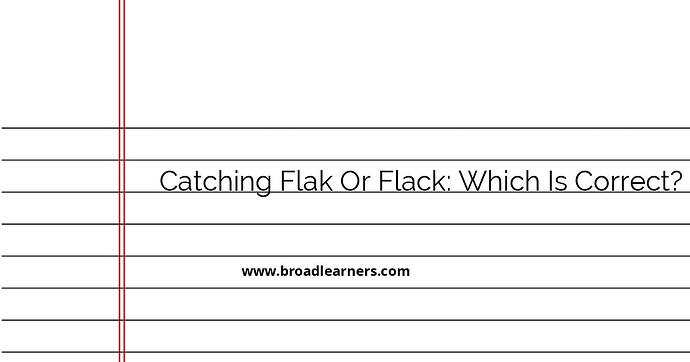The phrase "catching flak" is often used in English to describe receiving criticism or negative feedback. However, there's common confusion about whether "flak" or "flack" is the correct spelling. Let's delve into the details and clear up this confusion:
- The Correct Term: Flak
The term "flak" comes from the German word "Fliegerabwehrkanone," which is translated as "antiaircraft cannon" in English. During World War II, "flak" was used to refer to the exploding shells fired by these cannons. Over time, the term evolved into a metaphor for criticism or disapproval, much like the way antiaircraft fire would strike down flying aircraft.
Example:
"The CEO caught a lot of flak from the shareholders for the sudden drop in stock prices."
- Business Review
- The Incorrect Term: Flack
While "flack" is a valid English word, it is not related to receiving criticism. "Flack" usually refers to a press agent or public relations person. Thus, using "flack" in the context of criticism is considered incorrect.
Example:
"As the company's flack, her role is to handle all the media inquiries and public statements."
- Media Today
- Understanding the Misconception
The confusion likely arises from the phonetic similarity between "flak" and "flack." Many English speakers and writers mistakenly assume they are interchangeable, especially when referring to criticism. However, as we have clarified, "flak" is the correct term for criticism, while "flack" denotes a role in public relations.
Example:
Incorrect: "After the policy change, the senator caught some flack from his constituents."
Correct: "After the policy change, the senator caught some flak from his constituents."
In conclusion, when discussing criticism or negative attention, the correct expression to use is "catching flak." Understanding the distinction between "flak" and "flack" ensures your communication is accurate and professional.
Did I miss anything? Respond below
